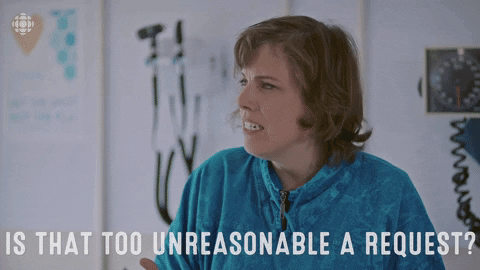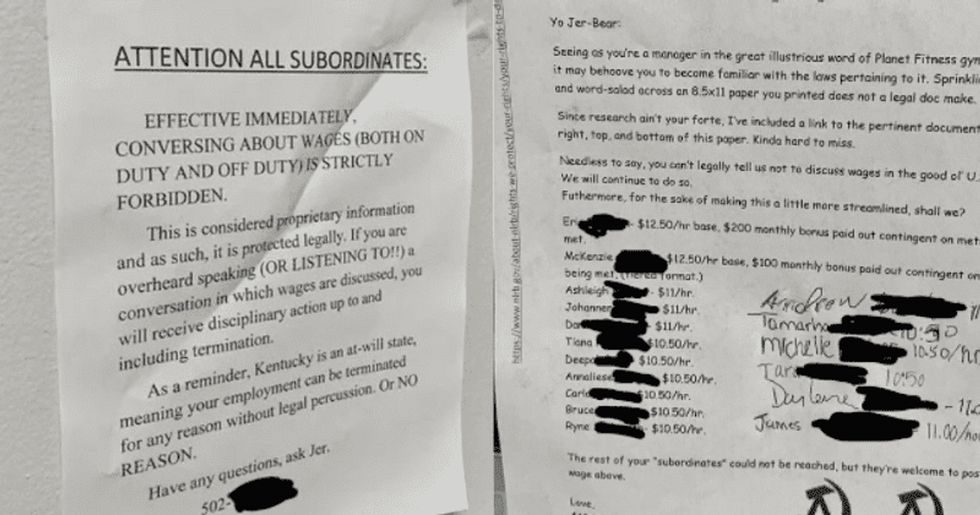What makes someone a genuinely good person? It's often not the grand gestures or public declarations of virtue—it’s the quieter moments, the ones no one’s watching, that reveal the most. Kindness and character are often found in the small decisions we make every day: how we treat others, how we show up, and how we behave when there’s nothing to gain.
In a recent conversation filled with personal stories and reflections, people shared the subtle ways they’ve recognized goodness in others. These aren’t loud or flashy traits—they’re quiet, powerful reminders of what it means to be decent and kind. Here are ten understated signs of genuine goodness.
1. How they treat people who can do nothing for them
One of the clearest signs of character is how someone treats those who aren’t in a position to offer them anything.
"How they treat people who can do nothing for them."
— jirennadir
Bitter_Sense_5689 added: "People who are kind to janitors, secretaries, and fast food workers are generally the people that you want by your side."
2. Humility in accepting help
Good people know that accepting help is not weakness—it’s a form of trust. There’s dignity in allowing others to step in when you’re in need.
helpinghandharry shared: "They don’t let pride get in the way of letting others lend a hand when they need it. It shows a level of trust and respect for others."
"They don’t let pride get in the way."
— helpinghandharry
3. Quiet acts of kindness
Doing something kind without broadcasting it? That’s a powerful sign of authenticity.
InsanelyEpicFrog noted: "They do something good without feeling the need to mention it to anyone."
octavia323 added: "They don’t post about their kind acts or acts of service on social media to gain attention."
"They do something good and keep it to themselves."
— InsanelyEpicFrog
4. Taking the time to teach
Teaching with patience—not ego—is a special kind of kindness. It reflects humility, generosity, and care for others’ growth.
patientprodigy put it beautifully: "Someone who pauses to teach others without condescension is a rare kind of good."
5. Consistency, even when no one is watching
True integrity doesn’t change based on who’s around. Genuinely good people make the right choices, even when there’s no one there to applaud.
"They do the right thing even when no one is looking."
— Ok-Double-7982
6. Genuine kindness to animals
How someone treats animals—especially when there’s no audience—says a lot about their empathy.
MiaLba summed it up simply: "They’re kind to animals."
7. Keeping their word, even with kids
Honoring your promises to children shows not just responsibility, but deep respect. Kids notice when adults treat them with dignity.
tracyvu89 emphasized: "Keep their words even with kids."
Banana_Joe85 added: "I try to never outright lie to them, keep my word to them, and always take their questions and concerns seriously."
"Keep your word, even to kids."
— tracyvu89
8. Leaving a positive impression
Sometimes the subtlest sign of a good person is how you feel after spending time with them.
Frequent-Law8230 said it best: "They leave you feeling good about yourself when they go."
9. Respect for others, no matter their status
It’s not about grand gestures—it’s about small, thoughtful actions that show care for the community.
Loud-Thanks7002 offered this example: "They take the shopping cart back to the return area when they’re done. Or even a bigger sign—they take back a stray cart that isn’t theirs."
10. Empathy in conflict
Being wrong isn’t a character flaw—how you respond to it is what matters. The best people are open to learning, even in small disagreements.
"How they act to being wrong… If they learn from said mistakes."
— ancientevilvorsoason
These thoughtful reflections remind us that genuine goodness isn’t about showmanship. It’s found in humility, consistency, and how we treat others—especially when there’s nothing in it for us. In a world full of noise, these quiet acts of kindness are what truly resonate.
Want to make a difference? Start small. Return the cart. Offer a kind word. Keep your promises. That’s how good spreads.












 It wasn't even February, so she wasn't expecting what came next.
It wasn't even February, so she wasn't expecting what came next.  The hug came first, the 'yes' took a few moments more.
The hug came first, the 'yes' took a few moments more. 






 Representative Image Source: Pexels | Oleksandr P
Representative Image Source: Pexels | Oleksandr P  Layout of the plane seatsImage Source: Mumsnet |
Layout of the plane seatsImage Source: Mumsnet | 




 Image Source: Joshua Potash | Reddit
Image Source: Joshua Potash | Reddit 



 Representative photo by luis arias |
Representative photo by luis arias | 
 Representative photo by Jamie Lee |
Representative photo by Jamie Lee | 
